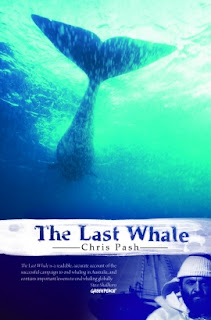'So do you own a farm around here?'
He was sitting next to me in the licensing department and waiting for his wife who had just left to do her drivers test. She was nervous, she said to me before she left. 'I haven't done a driving test for sixty years. What if they do it differently these days?'
While he waited for her, he told me about his childhood in Albany when 'no one had cars, only horses and carts.' He said that in 1939, his Dad had the first car in town and I'm sorry to say I looked skeptical.
'No, I don't own a farm.' I told him. But to justify my place in the world, I added, 'I do have a little block out near Hopetoun.'
'Oh yes. I like Hopetoun. A nice place. My family lived near there, a little place. My Mum grew up in a place called Kundip.'
'Kundip.'
'Yes.'
She grew up in a tiny hamlet amongst the moorts where men worked hard clay soil for copper and gold and the women worked to create a new, corrugated iron community. Her family lived in a tin shack the size of a single car garage, with a fireplace at the northern end, a rainwater tank and candles. It was a life constructed from kerosene tins and pragmatism. As part of her schooling she wrote letters to
'Aunt Mary' at the Western Mail about storms, emu visitations and playing tennis on a court of quartz.
'I bought a little block at Kundip.'
'Really?' He looked at me.
'Yeah. I built a shack there.'
'You built ... oh you built a shack.' he sighed and smiled. 'Ahh, that place has been dead for so long.'
Kundip is an odd place. As a town it had three lives before it was officially declared a ghost town. Now all that is left of the people who built their lives there are some footings, a pub cellar, a concrete pad, willow pattern crockery, the crook of a porcelain tea cup. ("See?' I say when we come across the middens of china. 'See. There were women here. Women.')
Recently I told the story of how a Noongar Elder bailed me up in the street to say he'd been to my shack. He expressed his delight that someone,
someone, had built something there. He loved that the rainwater tanks were full, that I'd built an abalone shell into the tankstand to hold a bar of soap, that I'd put a beehive in the forest behind the shack, that I hadn't locked a single door. At the time I was taken aback by his thank you's because I couldn't quite understand how a man whose country had so been so forcefully taken could be thankful to a wadjela woman who felt it to be her own.

It is grim, beautiful country. Driving around the bush tracks after I first bought the place, I came across the Dunn grave and realised what I was getting into, that it was massacre country, an area of frontier violence that has not been properly recognised to this day. It is fraught country, tied into past and contemporary conflicts. The landscape reflects that turning point and the contrariness of opinion. Every couple of hundred metres, the landscape changes dramatically. The block of land I own is different to my neighbour's. His has orchids. Mine doesn't, but it does have a species of melaluca unique on this planet. Nearby are Eucalypts that haven't even been named by Europeans yet.
I would recommend this post, to understand my mindset.
The Fitz and the Barrens slide
literally into Kundip to create its own eco system. Kundip is a perfect collision of ecology, geology and history.
'Maybe he realised that what you were doing was bringing a new life, a new understanding to the place,' a friend said to me on Tuesday, when I was talking to her about my feelings about Kundip. 'By trusting the place enough to build something there is a sign of your faith. That you love it and you believe in the country.'
As soon as I first saw it, I believed in Kundip. There is a peculiar kind of joy that I see in the Old People whenever they come to Kundip and see the shack. And also the old bloke in the licensing department, whose Mum grew up in Kundip when it was a real town. You should have seen the look on his face.
When the sun sets, the ground turns pink with magenta light against the quartz. At night the stars are brilliant. There is something really special about this old town of ghosts. I think the word 'healing' has been over-used. Maybe there is a poem to cover it. I don't have the words for it yet, anyway.






















